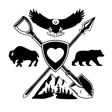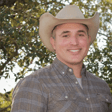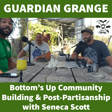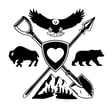
Environmental Architecture and Following Passion with Fred Phillips | PART ONE
Mark Matzeldelaflor, founder of Guardian Grange and former Navy Seal, is dedicated to promoting veteran healing through work in nature. In this podcast, he interviews Fred Phillips, an environmental scientist and landscape architect who has dedicated over 20 years to promoting sustainable practices and community-based conservation around the world. Fred has designed numerous wetland and riparian habitat restoration projects in the United States, Mexico, and Indonesia. His work has been recognized in various publications, including The New Yorker and Landscape Architecture Magazine. Phillips' passion for his work stems from his upbringing on a small farm with ties to agriculture and nature. He was inspired by a professor's alternative approach to landscape architecture that focused on rivers, watersheds, regions, cultures, stewardship of land as well as indigenous wisdom guiding landscape architecture rather than development squares or corporate headquarters designs. This led him to design a thousand-acre project on the Ahakhav Tribal Preserve on the Colorado River Indian Reservation when he was still a student at Purdue University. The project received millions in grants which helped build trails, native plant nurseries, and environmental education programs.
The conversation touches on challenges faced in their respective careers, but also highlights the importance of trusting instincts and being open to new opportunities. Overall, they emphasize finding fulfillment in one's work as a measure of true success. Both Fred & Mark believe that hard work and community building is a form of therapy, and that there is a dire need for clear and coherent communication between the heart and mind.
For more information on how to support Guardian Grange, please visit www.GuardianGrange.org
Guardian Grange Inc is a registered non-profit 501(c)(3), EIN 85-3841605. Contributions are tax deductible. Donations support our efforts to improve humanity and the environment by uplifting veterans to protect natural resources and strengthen communities.





